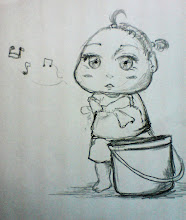Dragon Boat Festival and Dragon boat racing traditionally coincides with the 5th day of the 5th Chinese lunar month (varying from late May to June on the modern Gregorian Calendar). The Summer Solstice occurs around June 21 and is the reason why Chinese refer to their festival as "Duan Wu". Both the sun and the dragon are considered to be male. (The moon and the mythical phoenix are considered to be female.) The sun and the dragon are at their most potent during this time of the year, so cause for observing this through ritual celebrations such as dragon boat racing. It is also the time of farming year when rice seedlings must be transplanted in their paddy fields, for wet rice cultivation to take place.
The use of dragon boats for racing and dragons are believed by modern scholars, sinologists and anthropologists to have originated in southern central China more than 2,500 years ago, along the banks of such iconic rivers as the Chang Jiang a.k.a. Yangtze (i.e. during the same era when the games of ancient Greece were being established at Olympia). Dragon boat racing as the basis for annual water rituals and festival celebrations, and for the traditional veneration of the Asian dragon water deity, has been practiced continuously since this period.
This season is also associated with pestilence and disease, so is considered as a period of evil due to the high summer temperatures which can lead to rot and purification in primitive societies lacking modern refrigeration and sanitation facilities. One custom involves cutting shapes of the five poisonous or venomous animals out of red paper, so as to ward off these evils. The paper snakes, centipedes, scorpions, lizards and toads - those that supposedly lured "evil spirits" - where sometimes placed in the mouths of the carved wooden dragons.
Venerating the Dragon deity was meant to avert misfortune and calamity and encourage rainfall which is needed for the fertility of the crops and thus for the prosperity of an agrarian way of life. Celestial dragons were the controllers of the rain, the Monsoon winds and the clouds. The Emperor was "The Dragon" or the "Son of Heaven", and Chinese people refer to themselves as "dragons" because of its spirit of strength and vitality. Unlike the dragons in European mythology which are considered to be evil and demonic, Asian dragons are regarded as wholesome and beneficent, and thus worthy of veneration, not slaying.
Subscribe to:
Post Comments (Atom)

No comments:
Post a Comment